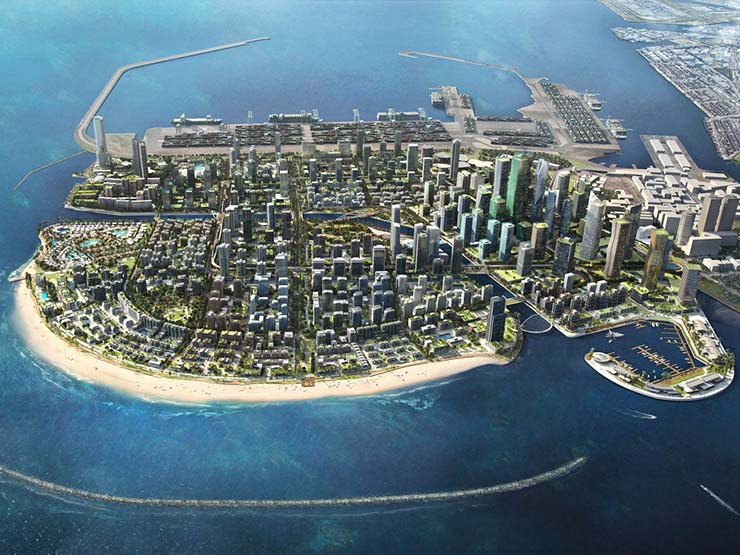The Sri Lankan Parliament on Thursday adopted a powerful Bill enabling a giant step in making Colombo Port City a ‘Chinese province’. The Colombo Port City Economic Commission Bill after getting clearance from the Sri Lankan Supreme Court, as per nation’s law now has been passed in parliament with a majority of 91 votes.
Despite, the Bill claiming to make the Port City a financial centre and an international island, it is receiving huge backlash from the opposition parties in the country accusing it of being a legislation that would betray the country. One of the major reasons behind such a counterblast is that the Colombo Port City is a Chinese project and part of President Xi Jinping’s Belt and Road Initiative.
The Bill is receiving major opposition even from the general public of Sri Lanka as they are worried about the fact that just the way Sri Lanka lost the Hambantota port after signing massive deals with the Chinese government, they might lose the Port City of Colombo as well because its clearly visible that Beijing is not looking for a partnership in Sri Lanka, but instead is looking for an overseas province.
The Colombo Port City Economic Commission:
The Colombo Port City Economic Commission Bill is inviting permission for the establishment of a commission empowered to grant registrations, licences, authorisations, and other approvals to carry on businesses and other activities in the Special Economic Zone (SEZ) to be established within the Colombo Port City.
The Supreme Court on April 23 concluded the consideration of petitions filed challenging the bill and announced that the determination would be directed to the Speaker. Also, the Supreme Court while announcing its decision found that several clauses of the Bill were inconsistent with the Constitution of Sri Lanka. However, the court stated that these clauses can either be amended or passed in the parliament with a special majority or in a referendum.
While delivering a special statement to the House on Thursday when the Bill was passed with a majority, Prime Minister Mahinda Rajapaksa said the government expects to bring in an amendment that allocates at least 75 percent of the job opportunities at the Colombo Port City should be specifically reserved for Sri Lankans.
CPC Commission:
The Colombo Port City Economic Commission Bill also provides for the setting up of a Colombo Port City (CPC) Commission of five or seven members. It has been made clear that this commission involving just five to seven persons will be responsible for clearing or declining ‘authorised persons’ individual applications to do business in the Port City. They will also be responsible to decide over tax-breaks, customs, VAT, and other export-import concessions for investors, and also exceptions from casino and gaming laws, amongst others.
The CPC commission in the Bill is another cause for concern as the Bill empowers President Gotabaya Rajapaksa to solely nominate five of seven members to the Commission. With this clause, it is being believed that the President will be unilaterally responsible for nominating at least five persons in the commission which will lead to absolute misuse of power.
Opposition slammed government over the Bill:
During the parliamentary session over the Bill, Samagi Jana Balawegaya (SJB) founder and Leader of the Opposition, Sajith Premadasa in clear words opposed the Colombo Port City Economic Commission Bill without naming any other nation as he believed that if the Bill became a law, ‘the country would become a servile to foreigners’.
The opposition even claimed that about 25 laws of the parliament didn’t even apply to the Bill designed for the Port City. Therefore, the opposition even urged the government to amend the bill in order to check against the money laundering that could happen in case China gains authority in the Port City of Colombo.
Apart from this, the leader of the left-leaning Janatha Vimukthi Peramuna (JVP), Anura Kumara Dissanayake, said that the Bill is tantamount to creating a ‘Chinese province’ in Sri Lanka and therefore, wanted a referendum to happen. But the government was always keen on avoiding the referendum as they enjoyed a majority in the parliament.
Other than this, the monks who backed the government into power also showcased their disapproval over the bill.
Chinese neo-colonialism in Sri Lanka:
It is being widely believed that with this project, China is purely looking to build an overseas province with the help of former President Mahinda Rajapaksa, now Prime Minister of Sri Lanka. Like Hambantota, China is alone going to stand to benefit from this Special Economic Zone project in the Colombo Port City (CPC-SEZ).
In past, we have seen that China wherever invests its money tries to alone gain profit by increasing the employment and investment opportunities for just Chinese people.

